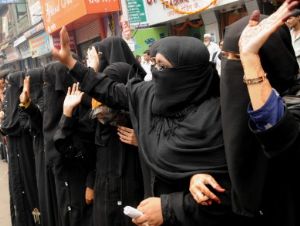
Lucknow, November 6: According to reports, the Muslim Jubilee Girls Inter College management has decided to strictly enforce the new rules with immediate effect and has warned that those found violating the directive would be expelled. The college administration justified its decision saying that it would curb incidents of eve-teasing and would promote Islamic culture among students.
A member of the society that runs the school said, "What's wrong in putting on scarf. We see a majority of the students who put on the veils voluntarily. An additional scarf will not harm them," adding that in Islamic countries, girls always put on scarf which reflects the Islamic culture.
Against the ban on mobile phones for the girls, the members said that that in case of an emergency, the girls can contact the school principal who will help them speak to their family members. Many girls, however, opposed the decision. "Cellphones are for our own safety ... we can keep in touch with our family in times of emergency," they said. They felt that the scarf should not be made compulsory.
Only recently, a college in Bulandshahar district had directed its students to shun wearing jeans and capris on the campus in an attempt to check growing incidents of harassment and molestation of girls. In another diktat issued recently, 'all women panchayat' in the Muzaffarnagar district had decided to ban jeans voluntarily and pledged not to grow nails.
Another prestigious college in Varanasi had directed the girl students not to wear 'provocative dresses' as they 'vitiate' atmosphere on the campus.





Comments
Add new comment